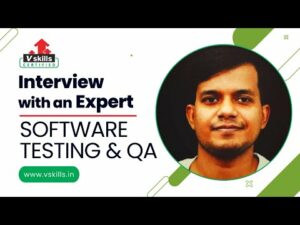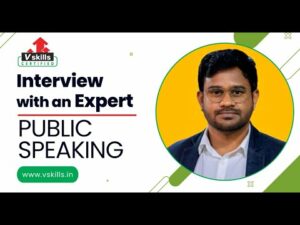Staying in one job all through one’s career is less common than it used to be, and job-hopping has become a norm, thanks to changes in the economy, high pace advances in technology, and changes in family life and structures, which have permanently altered the way we approach work. Today most of us tend to have multiple “careers”. In order to develop a career in Anti-money laundering
The world of job markets has opened up, and there is a hunger amongst participants to try new things, irrespective of the sector and nature of work. While this gives us options and a higher degree of freedom in it, it also causes the emergence of a new set of concerns: One is likely to be confused over which career is right to pursue, and might be unsure regarding the path to follow for success in the chosen stream.
Anti-Money Laundering Compliance Career Path
For those of you who are newly considering a career in the domain of Anti-Money Laundering compliance, and for those who are already at some advanced stage of their career in this field, this post will explore some of the choices open to you, and address any questions or concern areas that you haven’t found an answer to – at some places even asking questions that you might not have yet considered.
Entry-Level or Fresher Roles in AML Compliance
The demand for compliance executives at banks and financial institutions is high, so much so that juniors in this field are handed a wide range of responsibilities as soon as they begin with an entry role. At the beginning of your career in compliance, you will likely be focused on pursuing persistent research on any changes in regulations, and how such changes can affect the business. One might also be responsible to prepare for and manage inspections by the AML regulators in the country.
A junior compliance job will in all likelihood have a big administrative element – for example, reviewing of files and documents for identification and verification from new customers, checking emails and phone calls for monitoring and surveillance etc. The start of your journey in AML compliance will also test your strengths and abilities in understanding and applying complex and emerging technologies, and learning new techniques with such AML software.
Entry-level roles also include working in process teams, that are set up to:
- Screen customers in order to make sure that the organization is not accepting fraudsters or criminals as customers
- Check both domestic and global financial transactions to ensure that there is no money laundering activity being executed for funding terrorism
- Monitor financial transactions for any suspicious activity, in order to identify any fraudulent use of the accounts by the customer(s); and
- Fulfil requests from regulatory and law enforcement agencies of the country for furnishing information that may prove vital for ongoing criminal investigations.
If you are new to compliance, the prospect of carrying out these important tasks with responsibility and carefulness might seem daunting or exciting, depending upon your level of knowledge, skills, and attitudes. However, you can be assured of a high level of training, involvement, and support, which will be given to you by your peers and managers. You will be a part of such programs that ensure you are equipped with the necessary level of competence for whatever role you are assigned before you are encouraged to work independently. It is highly recommended that you have an open mindset towards learning and feel free to ask questions regarding any areas you need support with.
Mid-Level AML Compliance Roles
The transition into a mid-level role in compliance is about moving away from a role that merely offers support to the compliance team, and towards being more responsible for providing subject-matter expertise and being able to answer questions from the team members. The roles may also require organizing training materials, and conducting training sessions for other team members so that they are kept abreast of the organization’s compliance policies.
Top-Level AML Compliance Roles
At the director-level and above, professionals are responsible for helping to define and set policies as part of the organization-wide management teams, and so it goes without saying that only confident people who are willing to challenge senior bankers will make it this far in the compliance career path. In these roles, one also needs to oversee the implementation of any changes in rules or regulations for compliance.
In making it to the senior ranks of any AML career path, however, staff burn-out is a growing problem, as middle-office workloads are being increased by banks in response to a growing regulatory burden. Fortunately, professionals have the freedom of exit options – Big4 accounting firms, for example, hire risk and compliance professionals from the finance sector into their advisory teams, and local regulators often recruit directly from banks.
Managing the process teams is one of the top-level responsibilities for those with more experience. It involves capacity planning, managing teams and their performance and development, to ensure a smooth running of the functions. Other responsibilities include carrying out audit functions, writing policies and procedures based on regulations, and liaising with all stakeholders to ensure that these rules are being adhered to. Roles at the director or board level have the ultimate responsibility and accountability for individuals and activities within a firm.
Irrespective of the level you are at in the career path, support and training will be available to all employees, ensuring that they are fully prepared, relevant, and competent to guarantee compliance implementation across the firm.
AML Risk Analysis and Management Career Path
In an AML risk career path, your initial training period leaves you with an overview of the different risk functions you can specialise in – market, credit or operational risk. As a junior risk professional in any of these areas, much of your early journey will be focused on conducting risk assessments in detail, based on statistics, reports and market trends. One needs to have an analytical mind, for a job as a junior risk manager. Your responsibility will be to carry out quantitative analysis and risk assessment, by number crunching through complex modelling techniques, in order to find Value at Risk (VAR) measurements. Through these roles, one will also soon become adept at using financial software.
However, a successful career path in risk management does not rely entirely upon your ability to work with numbers. To grow up the ladder, you will need to also show an understanding of the institution’s business objectives and display a passion for staying updated with financial market trends, government news and anything else that might have an impact on the firm’s risk profile.
Starters in risk management must be able to work with the front-office desks and the senior management, by providing them with risk-analysis information. Whereas a mid-level role will demand from you the ability to actually influence – and when suitable, even challenge the front-office decisions.
Senior risk jobs, such as the role of a chief risk officer (CRO) typically sit at the top of the risk management hierarchy, ably supported by risk heads across different functions and regions. These roles provide an opportunity to develop and implement risk policies and procedures in the organization. One might also get to work with global risk management and leadership teams, and sometimes the organization’s board of directors to quantify the organization’s risk appetite, which is nothing but the level of risk the organization is willing to accept.
Before I conclude this post, it is noteworthy to be reminded that no two career experiences are the same, and each one of us as professionals experiences and learns from things differently. But whether you are going to spend the rest of your years working in compliance or you’re just passing through, a career in AML Compliance or Risk Management is one that promises to be filled with excitement, rewards, satisfaction, and varied experience.
Responsibilities and Roles of AML Professional
Being flexible in one’s approach is important to enjoying a career in AML. In a relatively smaller business organization, you might as well undertake a couple of roles simultaneously. You could carry out multi-tasks such as customer and payment screening, or assume responsibility for managing staff and writing policies.
In a large banking or financial institution – where different roles and responsibilities are handled across different business units – your work definition might be very specific. Your personality, past experience and skills will help you to identify and work in a role to which you’re best suited.
Compliance is diverse enough to allow working in new areas of technology and processes, and across different industries – every organization and every individual needs compliance, and people who help maintain it are crucial to every firm. From the perspectives of both career growth and job satisfaction, a professional qualification can give you an edge to move up the ladder or between these different roles and in trying something new; Certification programs such as the Vskills Certified AML-KYC Compliance Officer can equip you with a broader understanding of the wider area of Compliance. The credential can turn you into an expert for the AML Compliance role, help develop your knowledge and project your candidature to recruiters and organization staff as capable individuals, which goes a long way in furthering your career prospects.




